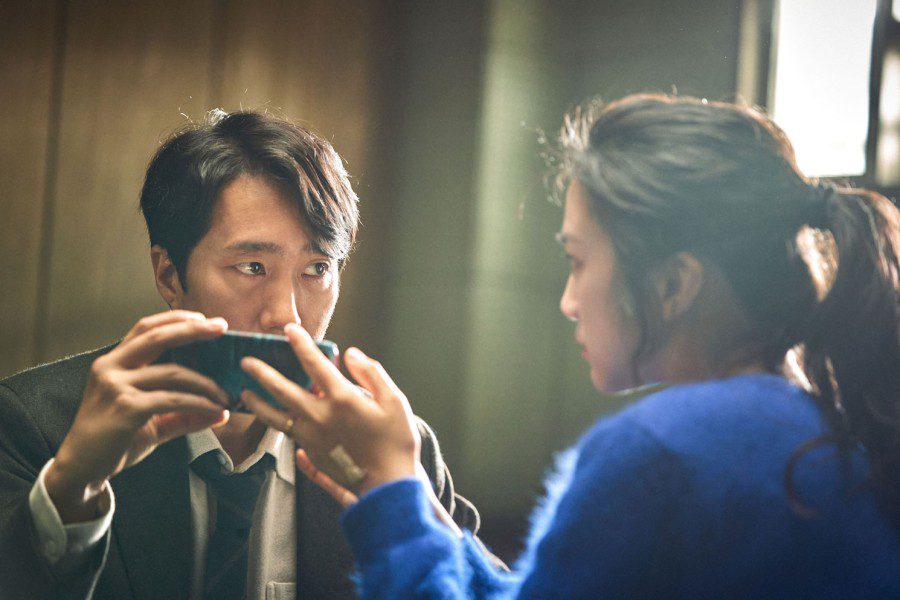NYFF 60 Review: Make the decision to watch ‘Decision to Leave’
Director Park Chan-wook delivers a crime-romance that already feels like a classic. “Decision to Leave” will screen at the 60th New York Film Festival on Oct. 19 and Oct. 20, and will play in select theaters across the city beginning on Oct. 14.
Stills: “Decision to Leave” is a romance/thriller by Korean director Park Chan-wook. The film is available at selected theaters beginning Oct. 14. (Courtesy of MUBI)
October 13, 2022
Spoiler alert: This article contains spoilers for “Decision to Leave.”
Murder, suspense and romance: all themes of a classic entertainment picture. With his latest film, director Park Chan-wook combines a plethora of well-known tropes and tricks with his characteristic precision, making the familiar feel brand new.
Hae-jun (Park Hae-il) is a seasoned detective. He is also a workaholic, so much so that he only maintains a “weekend marriage,” as his wife puts it. During the week, his insomnia keeps him astir and he can find nothing better to do than dig deeper into horrific, unsolved murder cases.
The detective’s latest mystery concerns a mountain climber who seemingly fell to his death from a mountain top. Foul play isn’t out of the question. Upon talking to the deceased man’s wife Seo-rae (Tang Wei), Hae-jun finds himself enthralled by her, and he soon becomes torn between solving the case and pursuing his infatuation.
The two leads participate in the classic noir dynamic of the detective and the femme fatale — for whom he loses sight of everything else. Hae-jun’s brings the added obsessive nature of a character like James Stewart’s in “Vertigo.”
A filmmaker known for his use of perverse subject matter, Park subverts audience expectations of potential sexual imagery like that of “The Handmaiden” by taking his protagonist’s obsession down a more existential route. Little happens between them, save for a kiss towards the end of the film, but the intensity amplifies as Hae-jun redirects his insomniac energy to stalk her and become familiar with her habits.
Park utilizes editing in the film to great effect, creating a consistently well-paced narrative and immersing the viewer in the characters’ mental states. Fades, match cuts and jump cuts show how Hae-jun can’t stop recalling memories and his inability to escape Seo-rae — nor her him.
A little over halfway through the film, Hae-jun finds out that Seo-rae killed her husband. After a climactic sequence where he traces her steps and climbs the mountain as she would have, he arrives at her apartment to confront her later that night. Rather than having the film end there, with her as femme fatale and him a foolish cop, their relationship continues to evolve. He confesses his love for her and reveals how heartbroken he is to learn that she tricked him. Instead of trying to restore justice, he tells her how to avoid suspicion. It’s clear that this story is not over.
Jump to over a year later — Hae-jun has moved to a new city with his wife and now works on petty crime cases instead of murders. Though his love for Seo-rae has died, hers for him has just begun. She arrives in town with a new boyfriend who, unsurprisingly, winds up dead soon after. Park treats the absurd coincidence with the right amount of seriousness, and the film switches from featuring a cop solving a murder to examining the twisted love story between detective and crook.
Here is where Tang’s performance shines brightest, as she transitions from the classic femme fatale to the yearning seductress. She succeeds in getting Hae-jun to come back to her, if only through exerted effort. Try as hard as she might, Seo-rae is smarter than to repeat the crime the way she did last time. Hae-jun eventually finds out about the murder, and his eventual rejection of her devastates Seo-rae as she takes on her third role as the hopeless romantic.
In spite of his wife leaving him, Hae-jun turns Seo-rae away. Despondent, she goes to the beach and digs a hole for herself to sit in as the tide drowns her.
Hae-jun searches for her along the shore. In wide shots, he walks right past her, never noticing her position. The ending is a great metaphor. Hae-jun initially struggled to see beneath the surface of Seo-rae’s intentions. However, in deceiving him, Seo-rae dug herself a grave, both physically and metaphorically.
Contact Sebastian Zufelt at [email protected].
























































































































































